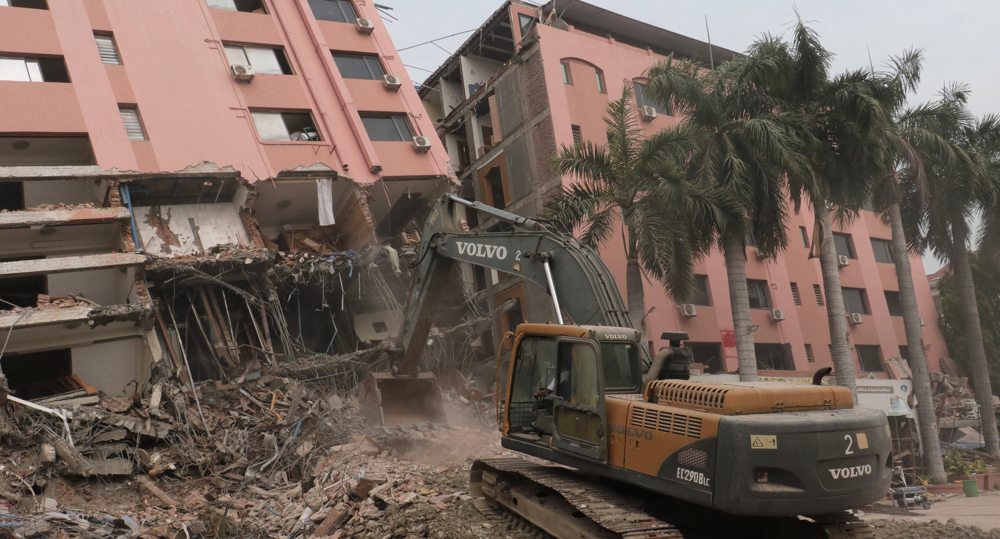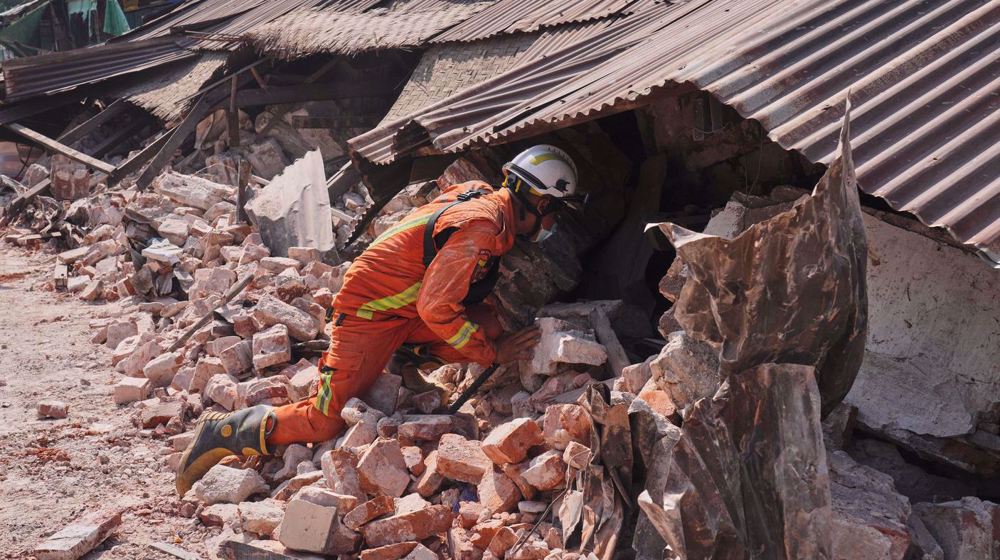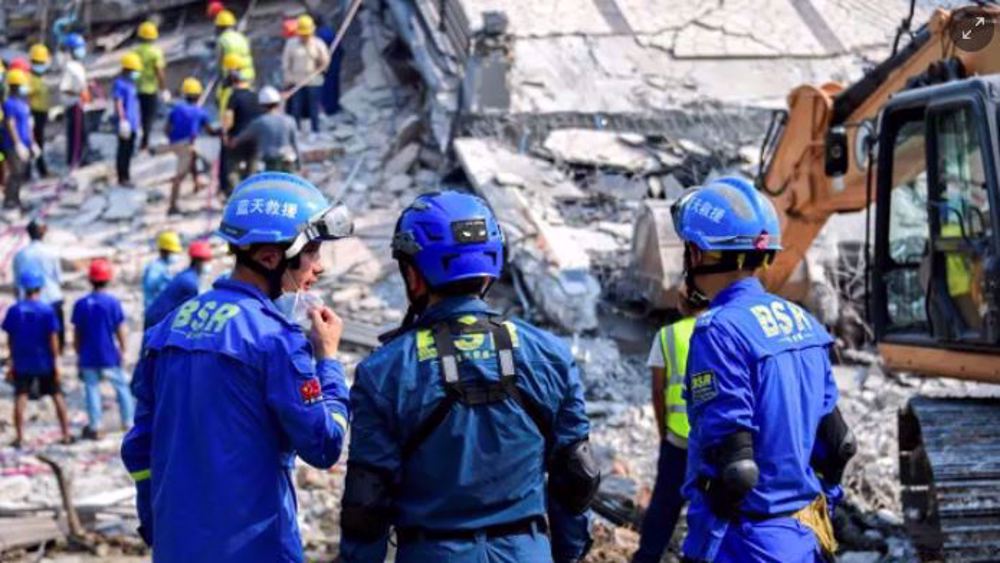Shelling of cities dashes hopes of ceasefire in South Caucasus
Armenia and Azerbaijan have accused each other of intense shelling on civilian areas and escalating two weeks of fierce clashes, dashing hopes that a Russian-brokered ceasefire might hold.
Azerbaijan’s foreign ministry said in a twitter message on Sunday that overnight attacks on a residential area in its second largest city of Ganja killed at least seven people and wounded more than 30, including children.
“New nightly missile attack by #Armenia/n forces on residential area of #Ganja, second largest city of #Azerbaijan. 7 dead 33 wounded, including kids reported,” it tweeted.
The attack came less than 24 hours after the halt to fighting was supposed to take effect.
Azerbaijan’s General Prosecutor’s Office said Armenian forces also launched a missile attack on Sunday morning against the city of Mingecevir which is totally outside the conflict zone.
The attack on the city, which hosts the largest thermal power plant in the South Caucasus, was repelled by Azerbaijan air defense forces, said the office. “The missiles were neutralized by the air defense forces of our military.”
Armenia’s defense ministry dismissed the allegations as “an absolute lie” and accused Baku of continuing to shell populated areas inside Karabakh, including the region’s main city of Stepanakert.
However, AFP reported how rescuers in red helmets dug through piles of debris with their bare hands in search of signs of survivors in Ganja.
"They retrieved one nearly naked body and gingerly put it in a white bag to be taken away in an ambulance while several horrified residents watched on and wept," the news agency reported.
One witness said they were woken by a huge blast that leveled an entire square block of one- and two-floor houses in the early hours of the morning, leaving nine apartments destroyed.
“Everything I’ve worked for my entire life has been destroyed,” 68-year-old resident Zahit Aliyev told AFP.
Situation 'calmer' in Stepanakert
Still, the leader of the disputed Karabakh region described hostilities as calmer on the second day of the ceasefire, but said that the truce was precarious.
"It seems that since this morning it is calmer, but that can change very quickly," AFP quoted Arayik Harutyunyan as saying in Stepanakert.
The agreement to pause hostilities in order to exchange prisoners and the bodies of people killed after two weeks of fighting was approved by Armenian and Azerbaijani foreign ministers in marathon talks in Moscow.
A senior Azerbaijani official said Saturday the truce was only meant to be “temporary,” adding Baku had “no intention to backtrack” on its effort to retake Karabakh.
Karabakh is internationally recognized as part of Azerbaijan, but it is held by ethnic Armenian separatists backed by Armenia since 1992 when they broke from Azerbaijan in a war that killed some 30,000 people.
In 1994, a ceasefire was put in place and France, Russia and the US — known as the “Minsk Group” — were tasked with finding out a lasting resolution to the conflict.
But for decades, the group has failed to stop sporadic outbreaks of fighting and implement four UN resolutions which demand that military forces leave the occupied territories and hand them over to Azerbaijan.
The most recent bout of fighting has been the heaviest since the 1990s war, with more than 450 people reported dead, thousands forced to flee their homes amid fears the fighting could escalate into a devastating all-out conflict.
The clashes have also increased concern about the security of pipelines that carry Azeri oil and gas to Europe.

Myanmar quake death toll passes 3,300: State media

Death toll from Myanmar quake rises to over 3,085

WHO warns Myanmar quake ‘top-level emergency’, seeks urgent funding
China raises retaliatory tariffs on US goods to 125%
Reaching agreement ‘possible’ if US ends intimidation, threats: Iran’s deputy FM
‘Iran’s chemical warfare victims living proof of hollowness of West’s human rights claims’
China's oil imports from Iran surge despite US sanctions: Report
Official: Iran has surpassed West's 'arbitrary' redlines on nuclear tech
Mostly women, children killed as Israel expands Gaza onslaught
VIDEO | Press TV's news headlines
Trump policy protest erupts outside US Congress










 This makes it easy to access the Press TV website
This makes it easy to access the Press TV website